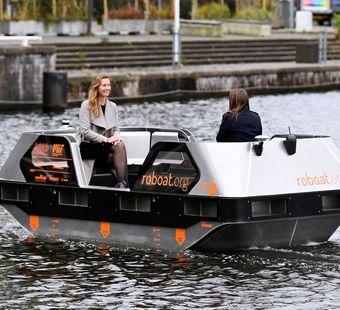By comparison, Southeast Asia has a lot of catching up to do when it comes to ESG (Environmental, Social and Governance) investments, compared to other more developed regions. However, the awareness of ESG factors has increased rapidly over the last decade as ESG investments have evolved over the years from a trend to a more sustainable approach to investing.
Even consumers are opting for more sustainable and green choices in their daily lives, from reusable shopping bags to plant-based meat substitutes and even paperless transaction for less wastage. Private and governmental organisations are factoring sustainability initiatives such as goals to achieve net-zero carbon emissions, waste reduction, inclusivity and fairness in workspaces, while world governments are making policies to support and encourage the transition to a low-carbon economy.
ESG and sustainability strategies are now fundamental and no longer optional. Guided by the United Nations Sustainable Development Goals (UNSDGs), ESG has become the milestone for adaptability and sustainable development in ASEAN in recent years under the notion that everyone is held responsible for contributing towards a sustainable future and that ESG priorities are the key to long-term, sustainable growth.
ASEAN Financial Players Doing It Right
ASEAN has united in establishing various sustainability and ESG-centric indices and funds in achieving the common goal. National stock-exchange bodies such as Bursa Malaysia, Indonesia Stock Exchange (IDX), The Philippine Exchange, Singapore Exchange (SGX), and The Stock Exchange of Thailand have made it mandatory for listed companies with recognised corporate responsibility practices to be selected and screened in accordance with transparent and clear ESG criteria. Global reporting frameworks such as the Global Reporting Initiative (GRI) and Sustainability Accounting Standards Board are used in a company’s sustainability returns.
Malaysia towards ESG
In Malaysia, banks are heading towards more sustainable financing and operating practices, making efforts to integrate ESG into their business strategy and operations. PwC conducted a survey last year to measure the local banking sector’s readiness for ESG - financial institutions are ready and have been gearing up to the ESG imperative, with most sharing concerns about climate change, environmental and social risks. The results from survey echo those of a study conducted the same year by Malaysia’s Joint Committee on Climate Change (JC3) - the committee co-chaired by Bank Negara Malaysia (BNM) and the Securities Commission Malaysia (SC) that focuses on building climate resilience within the financial sector.
92% of respondents indicated having a sustainability strategy in place, and 73% of banking respondents said they have made some commitments to ban or phase out financing of coal-related activities.
In the banking sector, Hong Leong Bank has been praised for being among the industry’s leaders in ESG standards, recognized by a 2021 CGS-CIMB Research paper for its efforts in promoting ESG practices across its operations, working with its borrowers to improve standards, incorporating ESG evaluation in its loan approval process, and practicing disclosure of ESG-related information.
Within the telecommunications sector, CGS-CIMB Securities has ranked Telekom Malaysia (TM) highly from an ESG perspective, highlighting the telco’s ability to consistently meet the regulator’s quality of service (QoS), key performance indicators (KPIs), relatively lower regulatory risks compared to other mobile telco players, and continuous effort to implement a robust cybersecurity framework. TM also announced earlier this year that it had implemented the use of renewable energy to power its data centres, becoming the first company in the country to do so.
PETRONAS is already optimising its production and operations, prioritising technology acceleration and innovation to develop low and zero-carbon fields, products and solutions, as well as advance emission reduction technologies to minimise CO2 production.
Plantation giant Sime Darby Plantations has moved up on the ESG initiatives by increasing transparency and awareness of sustainable palm oil production through geo-mapping their farms and launching Crosscheck 2.0 tool to trace and monitor deforestation.
The wider national approach in ensuring sustainability and growth have come together in its five-year 12th Malaysia Plan (12MP) introduced by the Malaysian government in September 2021, with the aims to achieve economic growth and transform Malaysia into “a prosperous, inclusive and sustainable country.” The plan includes achieving carbon neutrality by 2050, increasing the total installed capacity of renewable energy, enhancing green financing and incentives, and promoting the circular economy.
ESG in SEA
The inaugural ASEAN Tech for Environmental, Social, Governance Awards recently saw SEA industry players embarking successfully on the right path to ESG in tech and innovation. Various submissions for the award clearly demonstrated the start for the right journey towards a better observance of the sustainability agenda.
Aboitiz Equity Ventures (Philippines) drives operational eco(efficiency) and financial inclusion by leveraging frontier technologies within their business units. Aboitiz Data Innovation's data science and artificial intelligence (AI) capabilities was used to promote financial inclusion, while Aboitiz Power and Republic cement optimises resources and minimise wastage with AI & machine learning.
In Singapore recently, Southeast Asia’s leading superapp Grab announced three ESG goals for its sustainable and inclusive growth by establishing their commitment to doubling the number of marginalised individuals earning an income on its platform by 2025, achieving 40% female leadership by 2030 and becoming carbon neutral by 2040 via rolling out new programmes and access to the platform. Anthony Tan, Co-Founder and Group CEO said “We have to confront two important realities in a rapidly growing digital economy. First, an unequal access to opportunities, and second, an acceleration of climate change. This is why we are focusing our ESG goals on driving inclusive growth and closely managing the environmental footprint of our ecosystem. Our journey to becoming a triple bottom line company reflects our strong belief that the long-term success of our business is intricately linked to the welfare of the communities we serve, and the health of our planet,”.
Challenges in ESG
As more entities are making positive and promising investments in ESG while the demand for sustainable initiatives increases, some challenges remain. Some firms are still working on integrating ESG investments in their business strategies and only focus on one or some of the ESG aspects. The social aspect of ESG often gets ignored especially in SEA where the working culture is totally based on hard work and working hours while discounting mental health and a balanced work-life scenario to a lower importance. Fair wage and gender inclusion are also low on the ESG rating for the region.
More comprehensive guidelines and support from governing bodies need to be enforced to a higher extent in ensuring compliance and positive outcome. As the ESG model is now a “trend”, there are concerns on ‘greenwashing’ – representation of companies, products, portfolios and institutions as more sustainable than they really are. Stringent regulations and transparent reporting are necessary in making sure the ESG criteria are honoured and awarded rightfully.





